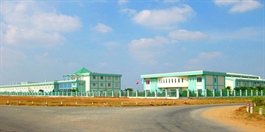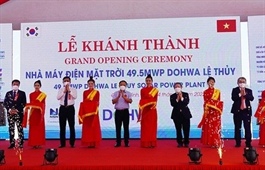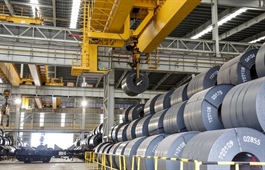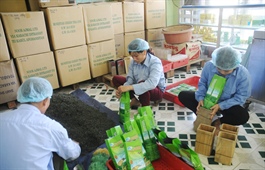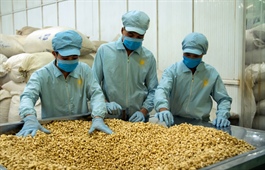Seafood processors urged to focus on sustainability
Seafood processors urged to focus on sustainability
Viet Nam’s seafood processors are urged to invest in sustainability to increase exports to the EU.

According to Vietrade Deputy Director Le Hoang Tai, the EU has remained one of Viet Nam’s largest seafood importers for years. Taking effect from 2020, the EU-Viet Nam Free Trade Agreement (EVFTA) has provided Viet Nam with even broader access to the EU market, with all the tariffs on aquatic products eliminated in seven years.
Viet Nam’s aquatic exports reached US$2.4 billion in the first quarter of 2022, up 40 per cent from last year.
Shipments of tra fish to the EU totalled $28 million in the first two months of this year, up 76 per cent year-on-year, while those of shrimp hit $159 million, up 66 per cent, on the back of rebounding demand post-pandemic.
Last year, Viet Nam exported over $1 billion worth of aquatic products to the EU, up 12 per cent against the previous year. The five biggest EU importers included the Netherlands, Germany, Belgium, Italy, and France, together accounting for 72 per cent of the total exports.
At the two-day Viet Nam – EU Business Matching Webinar on Seafood Products 2022 co-hosted by the Viet Nam Trade Promotion Agency (Vietrade) and Trade Offices and Embassies of Viet Nam in EU member states ending on Tuesday, Tai expected through the webinar, the Vietnamese producers would have better understanding of the EU market and the partnership between the two sides to further accelerate the development of the fishery industry in Viet Nam.
The event is part of this year’s national programme on trade promotion which aims to support Vietnamese seafood producers in seeking buyers in the EU.
Trade Counsellor in Sweden, Finland, Iceland and Latvia Le Hoang Thuy noted that a wider range of goods and instant food products had been made available at supermarkets in northern Europe. It would be a good opportunity for Vietnamese exporters to boost sales to standardised processing companies capable of supplying highly value added products to the market, she said.
Sustainable fisheries was an emerging trend in the EU, Thuy noted, adding that it would be likely integrated into the management system in the future. This meant the EU would require the use of higher socially and environmentally responsible practices on imported seafood over the years, the official said.
She also highlighted the importance of ensuring quality control management and rules of origin for Vietnamese products as the EU consumers are paying greater attention to health and origin matters of imported foods. She urged domestic firms to label their products with accurate information and focus more on branding and developing products based on consumption trends.







